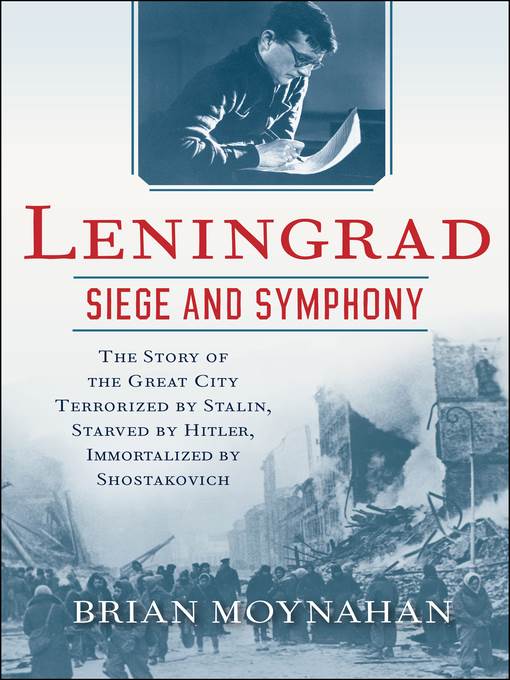
Leningrad
Siege and Symphony: The Story of the Great City Terrorized by Stalin, Starved by Hitler, Immortalized by Shostakovich
کتاب های مرتبط
- اطلاعات
- نقد و بررسی
- دیدگاه کاربران
نقد و بررسی

September 1, 2014
The siege of Leningrad by the German Wehrmacht during World War II was perhaps the greatest catastrophe ever to befall a city, with some one million deaths from a population only double that number. Moynahan (Jungle Soldier) here connects the wartime suffering of Leningrad (now St. Petersburg again) to what he likens as the triumph of its people as symbolized by the Seventh Symphony (often referred to as the Leningrad Symphony) of Dmitri Shostakovich, who composed it during the siege. The author vividly recounts the harrowing existence of both soldiers and civilians in and around the besieged city, interweaving their heroic responses to the invasion. Besides fending off the German onslaught, the inhabitants of the city were also hounded by Joseph Stalin's secret police (NKVD), who were on the lookout for scapegoats and perceived enemies. Shostakovich composed this tribute to his city on the Neva River, knowing that if it displeased the authorities he could expect a knock on the door from the NKVD. VERDICT Moynahan's rapturous commentary on the music at times amounts to puffery. Nonetheless an admirable tribute to the human spirit and artistic integrity. Highly recommended for all readers interested in the era and the wellsprings of artistic creation. [See Prepub Alert, 5/3/14.]--Edward Cone, New York
Copyright 2014 Library Journal, LLC Used with permission.

Starred review from October 15, 2014
Dmitri Shostakovich's famous Seventh ( Leningrad ) Symphony was mythologized from the beginning. A dramatic work featuring boldsome say bombasticmotifs of conflict and pride, the Seventh was composed under dire conditions and first performed in Leningrad by a makeshift orchestra of starving musicians while the city suffered under a devastating German siege. It was immediately seized upon by the Allied press as an inspirational symbol of Russian fortitude and patriotism. Back in the USSR, Stalin built a propaganda campaign around the symphony, using it to drum up support for the war effort. But, as Moynahan reveals, the real story of the symphony's genesis and its triumph was more complex and more tragic than is generally understood. Stalin, he reminds us, despised Leningrad's high culture and had been conducting his own aggressive siege of the city's intellectuals for the better part of a decade before the Germans showed up. The secret police continued to brutally crush all subversives, real or imagined, even as the Germans bombarded, the weather turned frigid, and the populace took to eating their pets, their wallpaper, and eventually each other. Shostakovich narrowly escaped the Stalinist purges, but his storied Seventh arguably hints at threats other than those from abroad. Combining a full description of the birth of the Seventh Symphony with a rich and horrifying account of the hell that was Leningrad under siege, this selection brings new depth and drama to a key historical moment.(Reprinted with permission of Booklist, copyright 2014, American Library Association.)

























دیدگاه کاربران